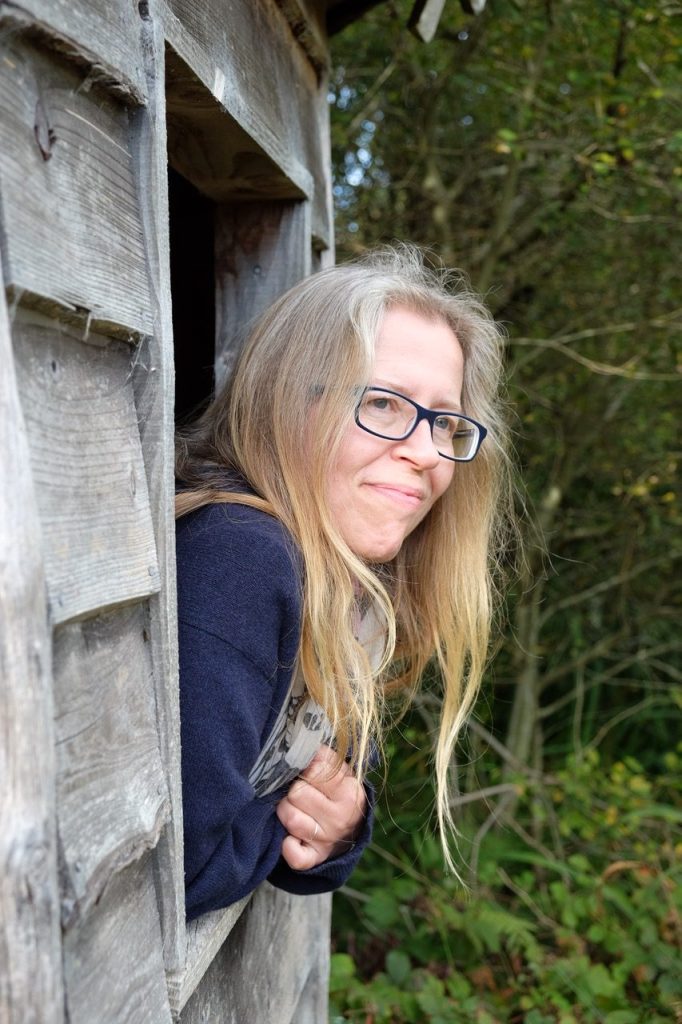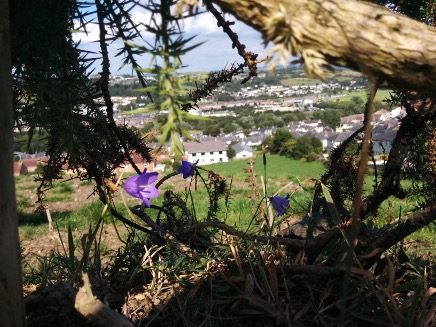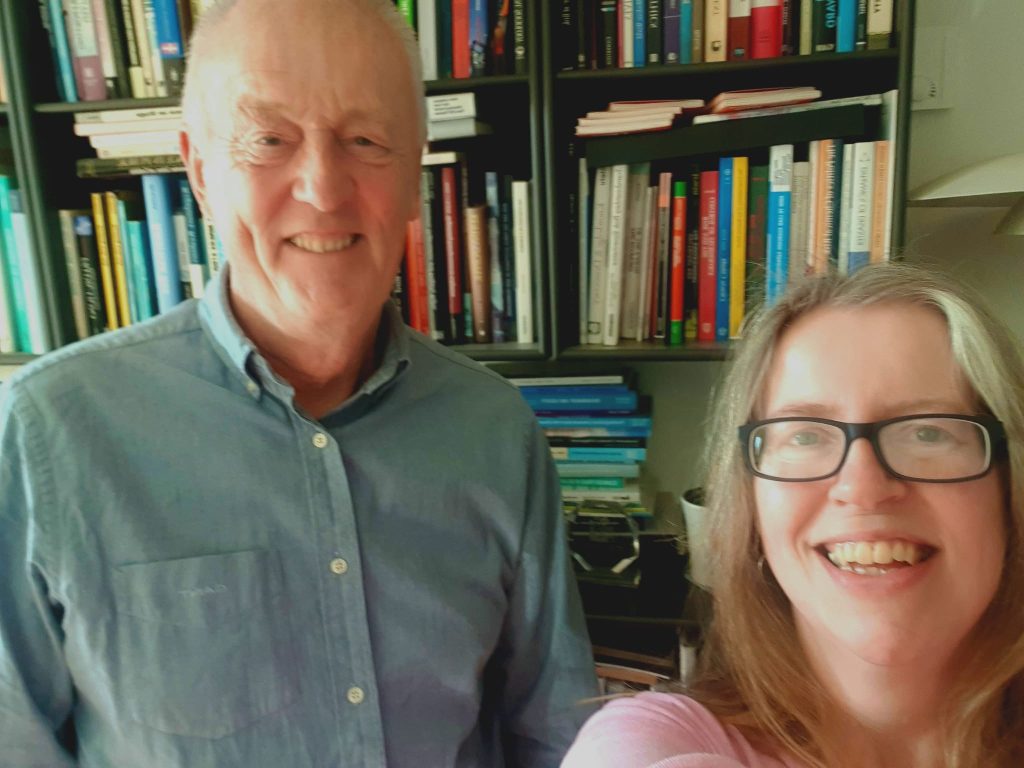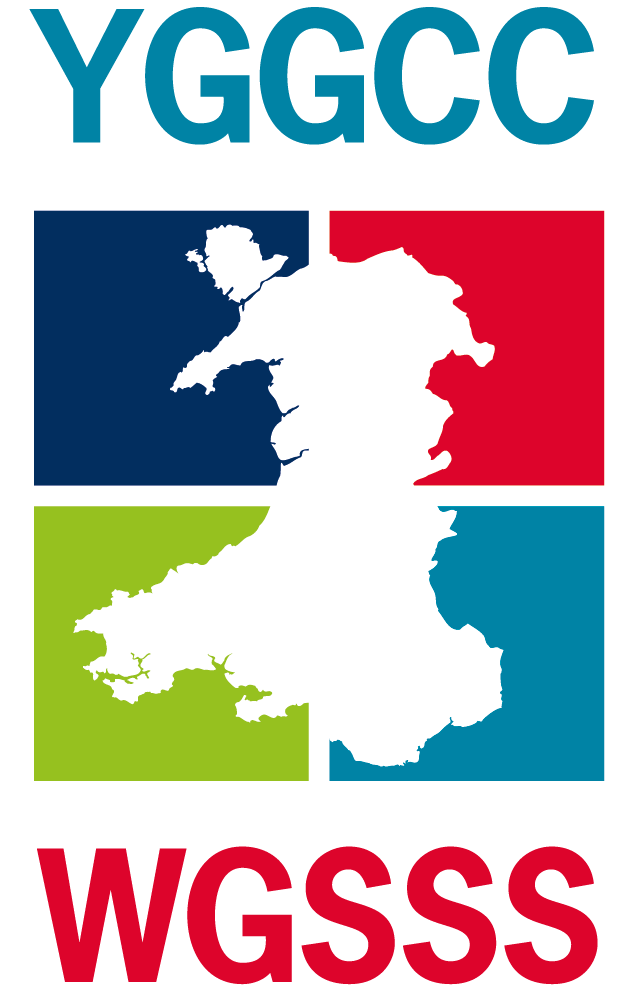Chloe Griffiths is a WGSSS-funded PhD student currently studying at Aberystwyth University on the Human Geography Pathway. Her thesis, titled “Community Participation in Biological Recording: An Ethnography of Citizen Science,” explores public engagement in scientific data collection. Chloe travelled to Copenhagen to interview Professor Alan Irwin of Copenhagen Business School, a leading scholar in the field of citizen science.

It’s not every day you get to meet an author, particularly the author of a book that means a lot to you. I’m a PhD student at Aberystwyth University, and this is the story of how I got to have a really great chat with the academic who literally “wrote the book” on my subject.
My name is Chloe Griffiths and I am passionately interested in Citizen Science. I am carrying out research to find out what motivates people to give up their time and expertise for free to add to the sum of human knowledge. My background is not so much a career path, as a career wander, through Child Protection, HR, running charities, teaching organic gardening, digital inclusion work and now as a consultant ecologist. The one thread that runs through all my work is a strong desire to work with communities, helping to bring people together, because getting everyone onboard is how we make progress. This is still the approach that I use in my PhD.
I have spent the last decade running a wildlife group in my village, Penparcau, a peri-urban community at the edge of Aberystwyth. The aim of the group is to build up a community of locals and University students to learn how to identify and then make scientific records of the wildlife that we spot.
Before we began, there were very few records of wildlife from this area, (other than for wildflowers, thanks to the work of some superb local botanists). Put this together with a high population concentration and the demand for housing, and the pressure to develop in our green spaces is clear.
In my community people often talked about the rich wildlife of the area, which they had seen and heard for generations, but nowhere was this knowledge made a matter of scientific record. This meant that the location of rare or declining species couldn’t be considered in planning applications, or in the setting of local priorities. Step up Citizen Science and a new direction for my life.
When I first heard this word, it immediately rang true as a description of my experience recording wildlife. I heard it as a rallying call for action, empowering all of us to contribute to what is known about our wildlife, in our area. I set up the Penparcau Wildlife Group to create a self-sustaining community of wildlife specialists, who would be able to use their skills to protect their own places, whether locally or elsewhere. The group is still thriving 10 years on, with more local people taking on responsibilities within it for leading sessions, something which gives me great satisfaction. Between us we have made more than 13,000 records of wildlife and made our village one of the best recorded spots in the whole county of Ceredigion.
During the years of surveying for a huge range of wildlife, from dragonflies to slugs, water voles to bats and the life of rock pools, I began to notice that taking part in Citizen Science as a community seemed to be having particular effects on the ways we shared what we knew as a group. There appeared to be a kind of exchange going on, that I benefited from enormously, and others also commented on, emphasising that it was not like teaching, or traditional learning, but some different, better thing.

I started to look at the literature, and found, to my surprise, that there was a gap in the field. Plenty of people had considered what people got out of volunteering, and out of wildlife recording as individuals, working alone, but I found nothing about what people got out of working in community groups to do these activities. Turning to Professor Irwin’s book, “Citizen Science”, published in 1995, I read about his experiences of this kind of working, its challenges and successes. He wrote that the knowledge of lived experience needed to be valued alongside what is conventionally thought of as ‘scientific knowledge’. I found this idea so fascinating that I asked to speak with the author, who works at Copenhagen Business School (as well as at Aarhus University).
This April I was lucky enough to visit Copenhagen, and to have an in-person chat to Alan Irwin. We spoke about his concept of the need for a “plurality of knowledge forms which need to be acknowledged and built upon”. (Irwin, A., 1995, p.167) As we discussed the multiple knowledges that need to be accommodated and respected in the practice of Citizen Science, Professor Irwin said that in addressing social and environmental challenges “the disciplinary boundaries are of no significance whatsoever”. This struck me as a very important point, chiming with the innate interdisciplinarity of the field, where members of the public generously offer expertise based on their experience as educators, scientists, gardeners, parents, authors, artists and any combination of the intersecting ways we define ourselves. As he clarified, when you have a person who is clearly deeply knowledgeable, whatever their discipline, the important thing to ask is “what do you know, and how can you help?” I found evidence of this in findings from my own research, where members of our wildlife recording group often spoke of how “everyone can contribute” and “everyone plays a part”.
Our discussion turned to considerations of what we call ourselves, and whether the term ‘citizen scientist’ is still appropriate. Alan Irwin noted that some practitioners have begun to use the term ‘participatory science’ in place of citizen science, particularly in the US, where it is now the preferred term. He explained that there is sensitivity around the term ‘citizen’, which can be used as a boundary term to exclude those from Mexico and other countries.
In the UK, I feel that the term ‘participatory research’ is used more to suggest an inclusive and non-extractive model of doing research with a community, but it is certainly the research process I follow with my community group. We do research together, following a methodology that seeks to be democratic and socially just. My research has uncovered some members’ opinion that the term ‘citizen scientist’ does not reflect the work they do as wildlife recorders, and this dissatisfaction is one that I will be investigating in my fieldwork. As Professor Irwin commented, “political, economic and social aspects get tangled up” in decisions on naming. I hope that my mixed methods approach of interviews, focus groups and ethnographically observed wildlife surveys will provide more richness of detail on how community groups reason about this issue, and a chance to us all to attempt to untangle it.
I found the opportunity to talk to the author of such a pivotal book in my field deeply enriching and inspiring. It is something that will leave a permanent impression on my research, and I thank Professor Irwin sincerely for the chance to discuss our ideas about citizen science together. Once I was home in Aberystwyth, I told Alan that I was writing this blog and asked if he would like to contribute a few words. This is what he sent me.
I learnt a lot from my conversation with Chloe Griffiths. She is passionate about her work in Penparcau, and has reflected deeply about the questions it raises. I wrote the “Citizen Science” book thirty years ago. At that point, I was struggling to come up with examples of what Citizen Science might look like in practice. Talking with Chloe reminded me that there are now many brilliant examples of Citizen Science in action. And the underlying issues of knowledge, participation and environmental action are as important as ever. As I say to my own research students, never forget the inspiration you can bring to those like me who started their academic careers a long time ago.
I might have written the book. But it takes dedicated people like Chloe Griffiths to make Citizen Science come alive and to take it to new levels. I really wish her every success with her PhD project and with her wonderful work in Penparcau.
Alan Irwin
To find out more about Professor Irwin’s work, visit the CBS website.

For students who are also interested in, or already undertaking participatory research, I recommend using methodologies with your participants that allow them to influence the direction of your research. Find ways to amplify their knowledge and experiences and to incorporate them into your findings. Be prepared to respond to their input, and to pivot and refocus your research, based on their contributions.
I am grateful to the ESRC for their scholarship, which funded this research. Thanks are also due to my supervisors, Professor Mike Woods from the Department of Geography and Professor Charles Musselwhite from the Department of Psychology, Aberystwyth University.
Please note that WGSSS research activity blogs represent the personal views and experiences of WGSSS funded PhD students, rather than the views of the DTP
